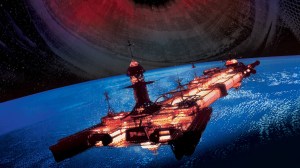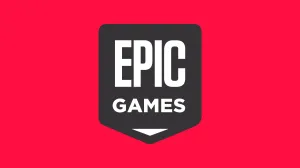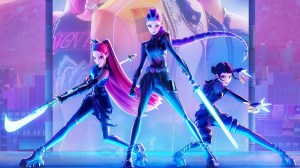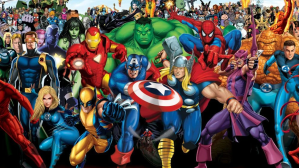
Gerry Duggan began writing Deadpool in 2012. His time with the character kicked off in Deadpool #1, the third issue to be labelled as such. A lot of writers had tackled the character since his debut in The New Mutants #98 where he was created by artist Rob Liefeld and writer Fabian Nicieza. It didn’t take long for the mutant merc’ to become one of the icons of the 1990s and develop a fanbase warranting multiple series, miniseries, and crossovers. Many comics icons, including Mark Waid, Christopher Priest, and Gail Simone, have written the ongoing adventures of Deadpool across the years. He is one Marvel Comics character not lacking for talented contributors.
Videos by ComicBook.com
Yet the past seven years have proven to be a particularly fruitful time for Wade Wilson. The growth of both Deadpool’s character and his surrounding mythos have been nothing short of remarkable. That’s due in large part to the dedication and vision of Duggan on the title. Now as his time with the character comes to an end with Despicable Deadpool #300 — at least for now — it’s worth looking back to examine Duggan’s legacy with this consistently popular anti-hero.

Growing the Family
What will likely be the longest-lasting contribution of Duggan’s run is the extensive, extended cast added to Deadpool’s world. While Deadpool has many characters associated with him, he has never had a family like this. Friends, like Cable and Domino, have made regular appearances in past Deadpool series, but are well-defined outside of their connections to the character. Other mercenaries, like Outlaw or Constrictor, have primarily been fodder for team-ups, not revealing much about the man they were paired with. What Deadpool has really lacked is a family unit, and that’s exactly what Duggan crafted throughout his entire run.
What Duggan did was to consider what the importance of a supporting cast is in superhero comics and create one that would bring out the best in Deadpool. Just like the diverse cast of characters in Spider-Man provide a wide variety of angles on the character and opportunities for adventure, that’s what many of Duggan’s co-creations have done for Deadpool. They are not one-trick ponies for a single story, but complex individuals capable of lasting for decades.
That’s no more apparent than with two early contributions, Emily Preston and Scott Adsit. This pair of S.H.I.E.L.D. agents have grown considerably throughout the run and helped Deadpool grow as well. Their respective emphases on responsibility and understanding have challenged Deadpool to be better as he has built relationships with them. They’re the tip of the iceberg though, and an extensive family of characters lies ready for future creators. Whether they’re interested in exploring the monstrous relationship Deadpool has with his ex-wife Shiklah or the surprisingly moving connection with his daughter Eleanor, Deadpool now has one of the best developed supporting casts at Marvel Comics.

Never Pinned Down
Duggan didn’t just emphasize diversity within the characters surrounding Deadpool, he played it up in the very nature of the stories. While Deadpool has a reputation for being the Marvel Comics character with jokes, Duggan showed the versatility provided by great comedic timing. Throughout his run Deadpool morphed into a lot of different styles, often during arcs. While some comedy was always present based on the nature of the character, it would be diminutive to define the run as being primarily comedic. Example abound across the past seven years of how much Duggan could stretch and alter the tone of Deadpool.
One of the best stories from the entire run was “The Good, The Bad, and The Ugly”, featuring a team-up with Wolverine and Captain America. It took the form of a military thriller with the trio invading North Korea in order to disrupt genetic experiments and rescue its victims. The story emphasized the stakes of the international affair and how seemingly responsible choice conflicted with humane decision making. It was a complex narrative that used each character to reflect the unique form of heroism in the others as well as initiate an ongoing admiration for Captain America. It showed off that Deadpool was a series capable of sustained seriousness.
On the other end of the spectrum, Duggan regularly crafted one-shots that took the series into past eras of comics, providing important elements of backstory while simultaneously commenting on the oddities and styles that fill the history of superhero comics. These were a delight because of how they embraced the metanarrative in Deadpool’s dialogue and applied it to the entire series. Yet even they were capable of surprising shifts in tone, opening the door for Deadpool’s daughter and other stories that paid off across the years.

Finding the Hero in the Merc
Duggan’s construction of a family and exploration of different styles of story were all purposeful. Across the years they helped to make Deadpool a much more sympathetic character, detailing painful origins, and a more heroic one, giving him opportunities to succeed and help others. While his journey has been far from perfect, a human being has emerged from beneath the mask and yellow speech bubbles. Wade Wilson might be an imperfect hero, but he has certainly become heroic in a very human fashion.
Simple qualities like loyalty and affection are at the heart of his change, with his actions driven by the people he cares for instead of any broad-based idealism. Deadpool has become a surprisingly relatable hero whose failings are as understandable as his successes. Duggan has reshaped Deadpool’s place at Marvel Comics and integrated him further into the ongoing narratives of superteams and big fights by making him one of the best heroes in superhero comics today.
Looking at Deadpool in 2018, he is almost unrecognizable from the character in Duggan’s Deadpool #1. That’s not just because his heroic potential has been built up. In addition to be a more fully understood character, Deadpool has shown himself capable of occupying almost any sort of story with a supporting family of characters that can join him. Duggan has left a legacy on the title that should leave fans expecting much more than some excellent jokes and violence in years to come. He has shown us that Deadpool is a top-tier character at Marvel Comics, and that will never change.








